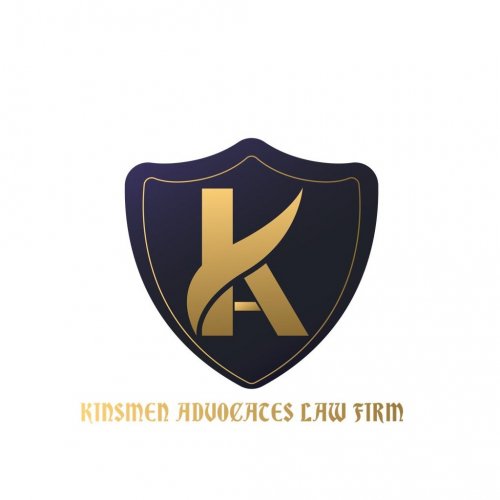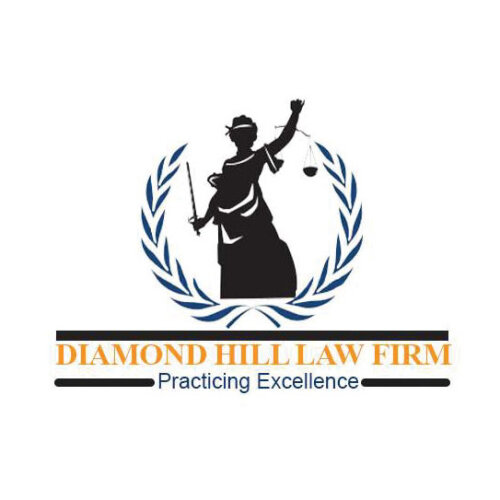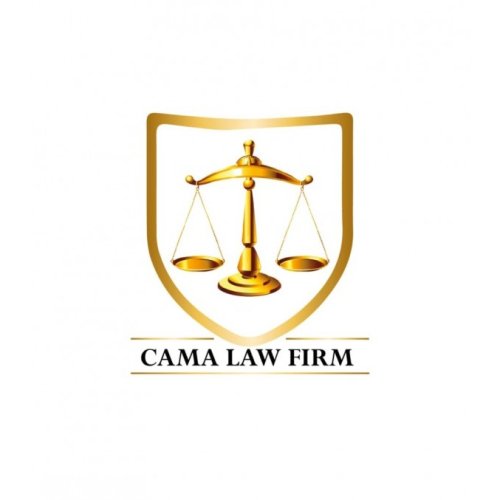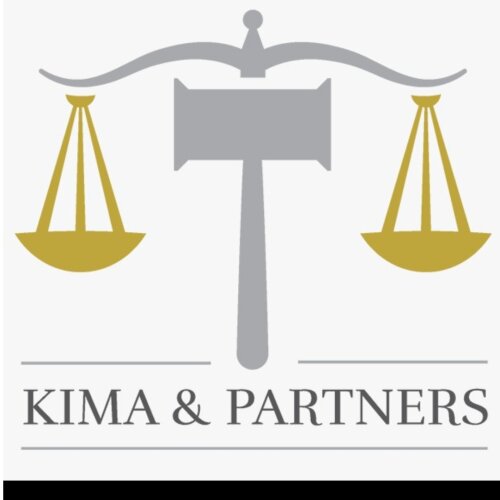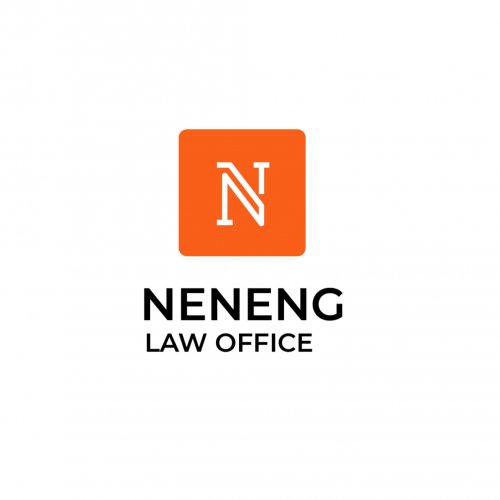Best Corporate & Commercial Lawyers in Cameroon
Share your needs with us, get contacted by law firms.
Free. Takes 2 min.
Or refine your search by selecting a city:
List of the best lawyers in Cameroon
Legal guides written by CHI & Partners Law Firm:
- Ship Registration in Cameroon
About Corporate & Commercial Law in Cameroon
Corporate and commercial law in Cameroon covers the legal framework governing business formation, operation, transactions, and disputes for both national and international enterprises. This branch of law is integral to the daily functioning of businesses and addresses issues such as company registration, mergers and acquisitions, intellectual property, shareholding, company governance, taxation, contracts, insolvency, and regulatory compliance. Cameroon operates a mixed legal system influenced by both French civil law and English common law, leading to unique nuances in its business regulatory environment.
Why You May Need a Lawyer
Navigating the corporate and commercial law landscape in Cameroon can be complex due to frequent regulatory updates and the interaction of multiple legal systems. Engaging a lawyer is crucial in several situations, such as:
- Starting a new business or registering a company with the appropriate authorities
- Drafting, reviewing, or negotiating commercial contracts
- Mergers, acquisitions, and joint ventures
- Ensuring compliance with local and regional business regulations (including OHADA law)
- Resolving business disputes through litigation, mediation, or arbitration
- Restructuring or dissolving a business
- Protecting intellectual property rights like trademarks and patents
- Managing employment and labor issues in a corporate environment
- Handling matters related to foreign investments or cross-border trade
- Tax planning and addressing issues with tax authorities
Local Laws Overview
Corporate and commercial activities in Cameroon are governed by local laws, regional treaties, and international conventions. The Organization for the Harmonization of Business Law in Africa (OHADA) provides a unified legal framework for business law across 17 African countries, including Cameroon. The main legal documents governing corporate and commercial activities include:
- OHADA Uniform Act on Commercial Companies and Economic Interest Groups - sets out requirements for business formation, governance, and dissolution
- Cameroonian Commercial Code - governs commercial activities and transactions
- Tax Code - regulates corporate taxation, duties, and fiscal obligations
- Labor Code - provides guidelines on employment relationships within companies
- Intellectual Property Law - protects trademarks, copyrights, and patents through the African Intellectual Property Organization (OAPI)
- Foreign Investment Regulations - outline procedures and benefits for foreign investors, ensuring compliance with national and regional regimes
- Company registration requirements - business entities must register with the Trade and Personal Property Credit Register (RCCM) and meet sector-specific licensing requirements
Cameroon’s dual legal heritage (civil and common law) leads to certain procedural differences in the Anglophone and Francophone regions, especially concerning administrative and judicial processes.
Frequently Asked Questions
What types of business entities can be formed in Cameroon?
Common types include Société Anonyme (SA or public limited company), Société à Responsabilité Limitée (SARL or private limited company), partnerships, sole proprietorships, and branches of foreign companies. The choice affects liability, tax obligations, and governance.
What are the key steps to register a company in Cameroon?
The main steps are reserving the company name, drafting and notarizing articles of association, registering with the Trade and Personal Property Credit Register (RCCM), obtaining a taxpayer identification number (NIF), and fulfilling sector-specific licensing or regulatory requirements.
Is foreign investment allowed in Cameroon?
Yes, Cameroon encourages foreign investment and has a legal regime to protect and facilitate it. This includes opportunities for tax incentives, guarantees against expropriation, and the repatriation of profits, provided investors comply with the relevant legal procedures.
How does Cameroon’s legal system affect commercial litigation?
Cameroon’s dual legal system (French civil law and English common law) affects procedures and dispute resolution, depending on the region. Business disputes can be resolved through regular courts, commercial courts (in certain jurisdictions), or arbitration in line with OHADA provisions.
What is OHADA and why is it important?
OHADA (Organization for the Harmonization of Business Law in Africa) provides uniform business laws for member countries, including Cameroon. OHADA laws supersede conflicting national laws and cover company formation, contracts, insolvency, and secured transactions, thereby simplifying regional transactions.
Do I need a local partner to start a business in Cameroon?
While foreign investors can wholly own certain businesses, specific sectors (e.g., oil, telecommunication) may require local participation or are subject to further scrutiny. Legal advice should be sought to understand sector-specific requirements.
What are the tax obligations for companies in Cameroon?
Corporate entities must pay corporate income tax, VAT, social security contributions, and other sector-specific levies. Tax rates and compliance requirements depend on company size, sector, and location.
How are intellectual property rights protected?
Cameroon is a member of the African Intellectual Property Organization (OAPI). Registration of trademarks, patents, and designs must be done through OAPI to secure protection in member countries.
Are there specific requirements for mergers and acquisitions?
Mergers and acquisitions must follow the applicable OHADA laws, obtain shareholder and sometimes regulatory approval, undertake due diligence, and ensure compliance with antitrust rules and disclosure obligations.
What should I do if I am in a business dispute?
Early consultation with a qualified lawyer is recommended. Dispute resolution may occur through negotiation, mediation, arbitration (as per OHADA arbitration rules), or litigation in Cameroonian courts, depending on contracts and the nature of the dispute.
Additional Resources
Several organizations and governmental bodies can assist with corporate and commercial law matters in Cameroon:
- Ministry of Commerce - Regulates trade and business activities
- Ministry of Finance - Oversees taxation and financial regulations
- Chamber of Commerce, Industry, Mines, and Crafts (CCIMA) - Provides support for business establishment and regulatory guidance
- OHADA Regional Office - Offers resources on uniform business laws
- National Agency for Investment Promotion (API) - Guides foreign investors and offers investment incentives
- African Intellectual Property Organization (OAPI) - Administers IP rights registration
- Local bar associations - List licensed lawyers and law firms specializing in corporate and commercial law
Next Steps
If you require assistance with corporate and commercial law in Cameroon, consider the following steps:
- Assess your legal needs and gather relevant documentation
- Consult a qualified lawyer or law firm with expertise in corporate and commercial law in Cameroon
- Confirm the lawyer’s credentials, experience, and familiarity with your specific sector
- Prepare a clear summary of your business goals, challenges, and questions for an efficient consultation
- Follow your lawyer’s advice on regulatory compliance, contract negotiation, and dispute resolution
- Engage with relevant government agencies or professional bodies as advised
Proactively seeking legal advice will help you navigate the complexities of Cameroon’s corporate and commercial law environment and safeguard your interests in business transactions and operations.
Lawzana helps you find the best lawyers and law firms in Cameroon through a curated and pre-screened list of qualified legal professionals. Our platform offers rankings and detailed profiles of attorneys and law firms, allowing you to compare based on practice areas, including Corporate & Commercial, experience, and client feedback.
Each profile includes a description of the firm's areas of practice, client reviews, team members and partners, year of establishment, spoken languages, office locations, contact information, social media presence, and any published articles or resources. Most firms on our platform speak English and are experienced in both local and international legal matters.
Get a quote from top-rated law firms in Cameroon — quickly, securely, and without unnecessary hassle.
Disclaimer:
The information provided on this page is for general informational purposes only and does not constitute legal advice. While we strive to ensure the accuracy and relevance of the content, legal information may change over time, and interpretations of the law can vary. You should always consult with a qualified legal professional for advice specific to your situation.
We disclaim all liability for actions taken or not taken based on the content of this page. If you believe any information is incorrect or outdated, please contact us, and we will review and update it where appropriate.
Browse corporate & commercial law firms by service in Cameroon
Cameroon Attorneys in related practice areas.
Browse corporate & commercial law firms by city in Cameroon
Refine your search by selecting a city.






